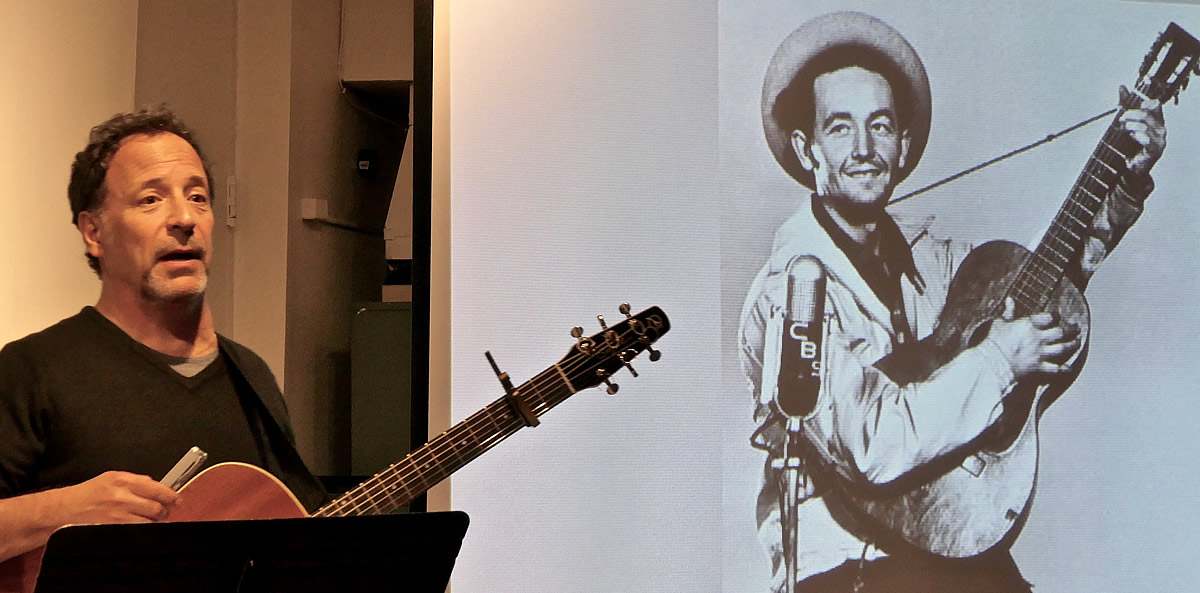It was standing room only in the Revelation Gallery at St John’s in the West Village when Will Kaufman hit town to present his livewords-and-music documentary about the life and work of Woody Guthrie and the songs he wrote in the 1950s for his Brooklyn landlord, one Fred Trump.
Kaufman, singer, guitarist – and academic, Professor of American Literature and Culture at Britain’s University of Central Lancashire – discovered the Trump songs in the Woody Guthrie Center archive in Tulsa, Oklahoma. They are among the aspects of the singer-songwriter and journalist’s work explored in his new book Mapping Woody Guthrie (University of Oklahoma Press).
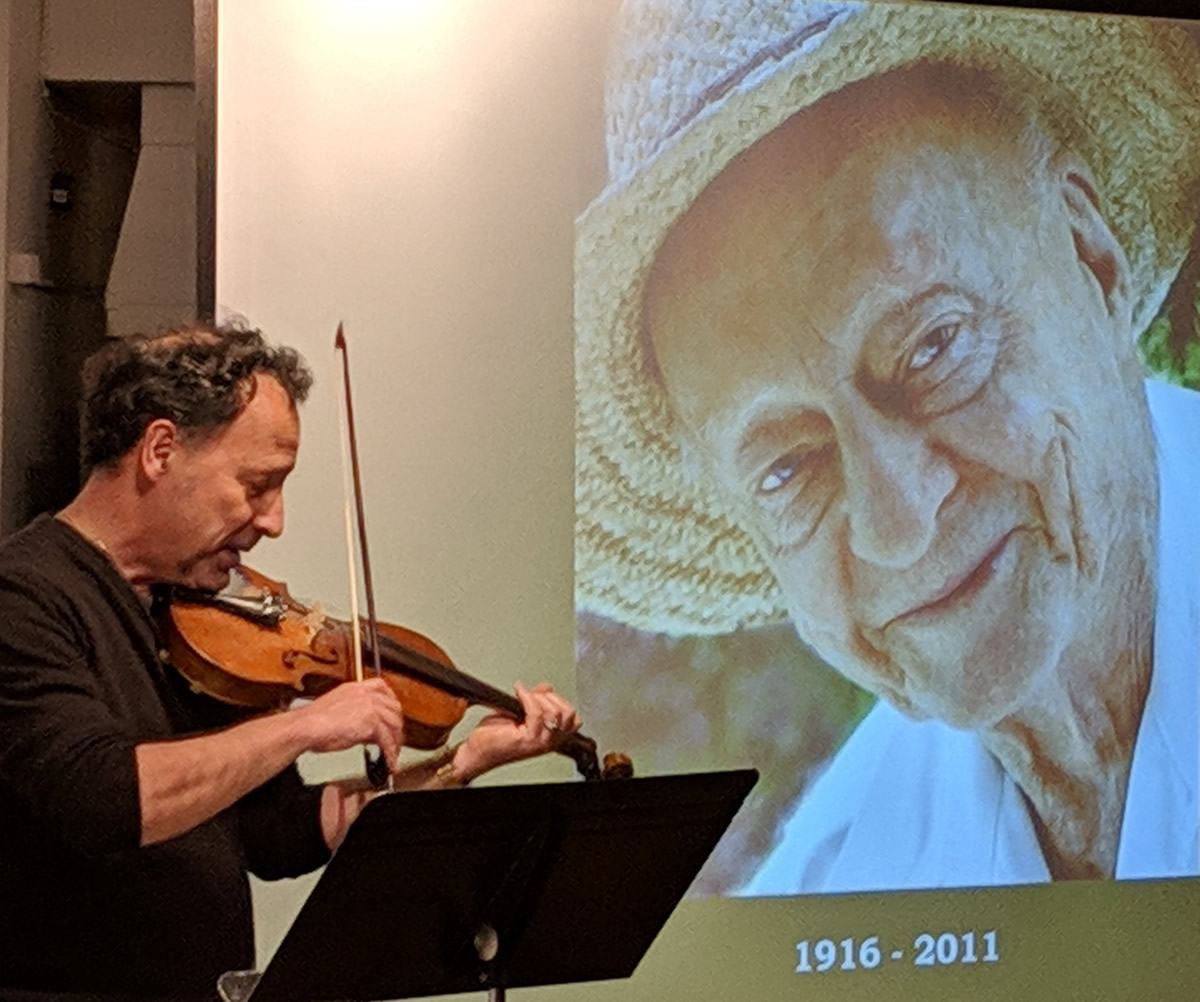
In New York City for the 2015 Christmas holidays and depressed by the presence in the Republican race of “a reality-TV caricature” and “legendary New York real estate hustler” who proudly proclaimed that “my legacy is my father’s legacy,” Kaufman recalled the unpublished songs he’d recently come upon. They were written in 1950, not long after Guthrie had signed a lease on an apartment in Beach Haven – post-War public housing built in partnership with the private sector; a partnership which laid the foundations of the Trump family fortune.
Within four years, Old Man Trump would be investigated for profiteering and, two decades after that, and by then in partnership with son Donald, for racial discrimination. Guthrie would write: “My worst enemy is my landlord that tries his best to make me and my family live a life of race hate just because he so sickly chose to live his own sad life that way.”
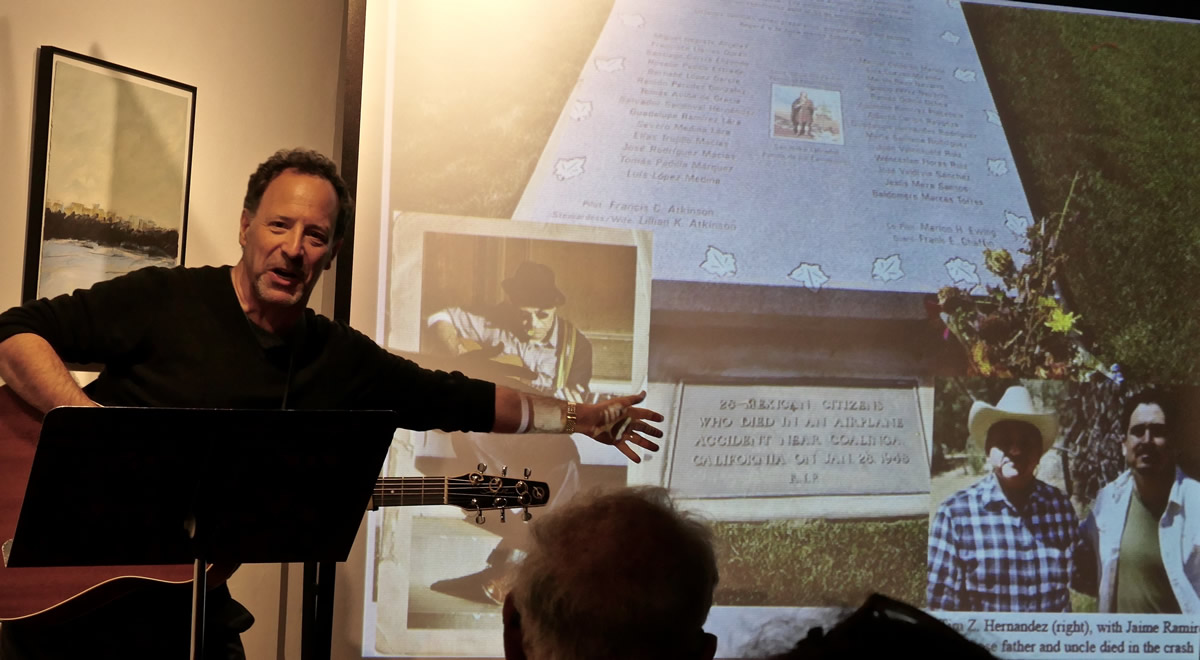
At the end of 1952, with her husband diagnosed with Huntingdon’s Disease, Marjorie Guthrie and her children left “Bitch Haven”, as Woody was by then calling it. He wrote:
I suppose
Old Man Trump knows
How many drops
Of sad tears
And crazy fears
He caused my family
In and out of
Beach Haven to feel
And to fall heir to.
“And now there’s another Old Man Trump inspiring more ‘sad tears and crazy fears’,” Kaufman concluded. “We can never know for sure how Woody would have responded to him. But we can make a few educated guesses.”
Among the audience were Guthrie’s daughter Nora, her husband Michael, and son Cole Quest, himself a musician; Village archivist and collector Mitch Blank; and singer-songwriters Diana Jones, David Massengill and Miriam Elhajli. David Amram, The Village Trip Artist Emeritus, who worked with Woody and innumerable other musicians and who has been a part of the Village arts scene for seventy years, introduced the event.
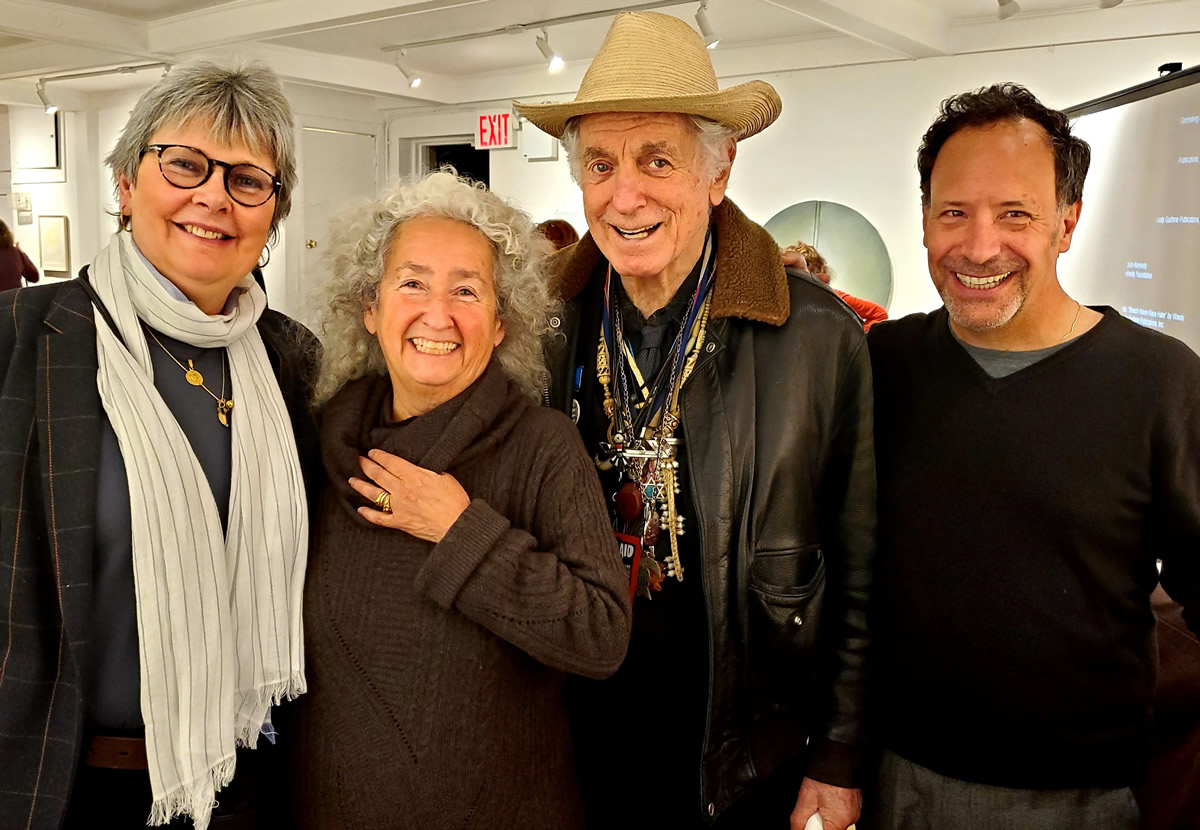
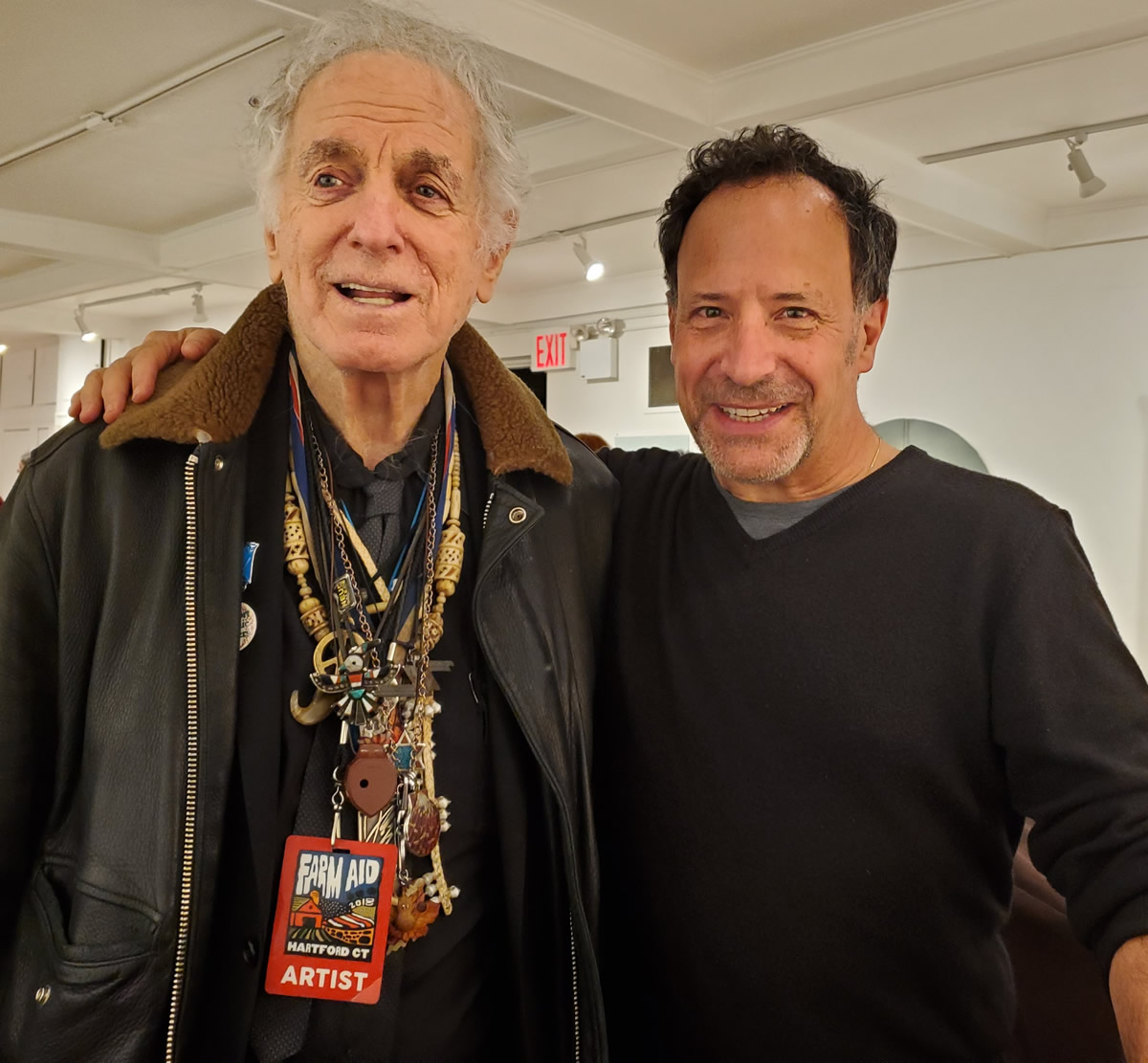
The performance – a benefit for The Village Trip – took place a few paces from the Almanac House at 130 West 10th Street – “a song factory,” according to the late Dave van Ronk – where Guthrie, Pete Seeger, Lee Hays, Millard Lampbell, Agnes ‘Sis’ Cunningham, Butch Hawes, and Bess Lomax, collectively known as the Almanac Singers, lived at various times in the early 1940s.
The Village Trip would like to thank Father Graeme Napier for the use of the church facilities and the Washington Square Hotel for the wine.

